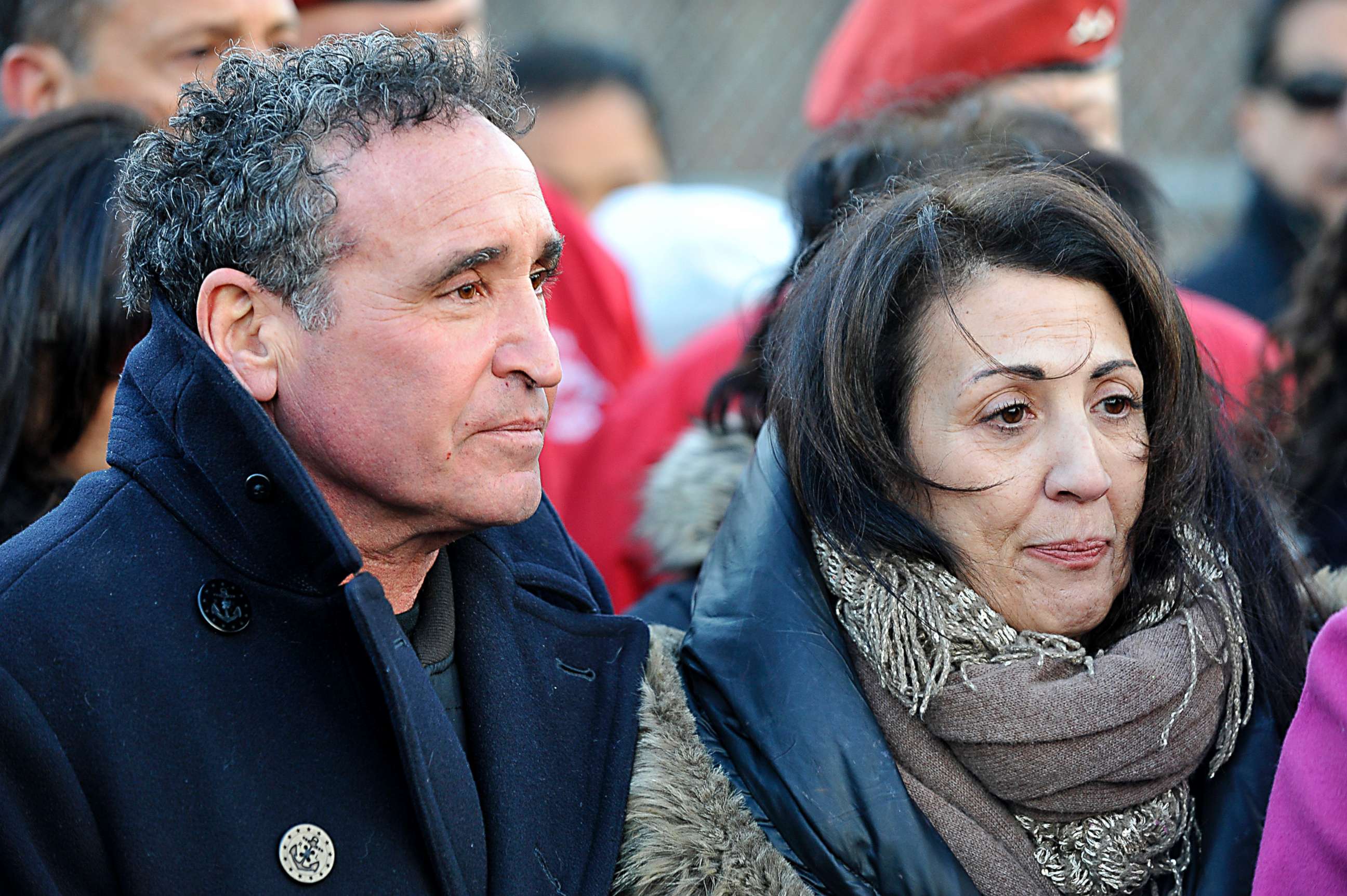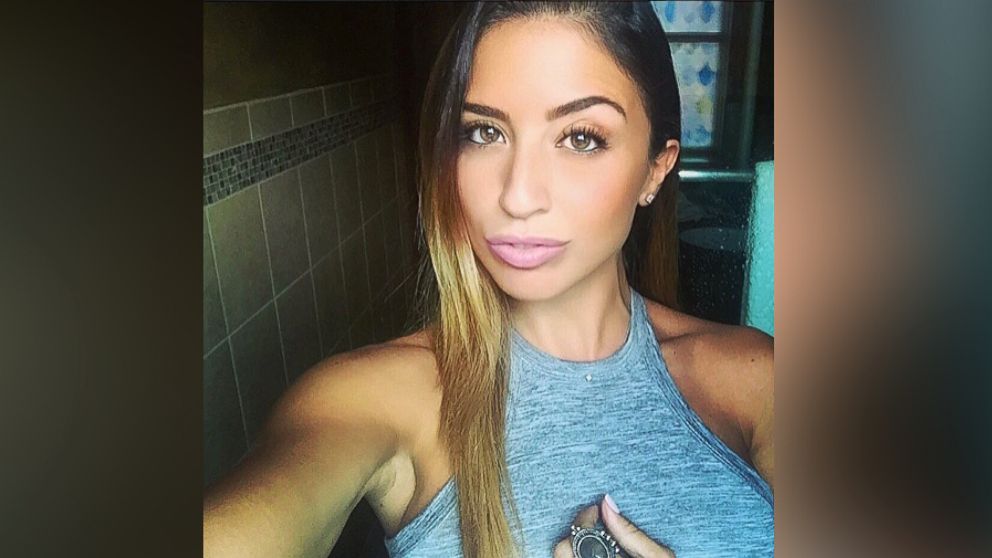Queens jogger's killing haunts her father a year later: We'll 'suffer until we die'
— -- On a warm August afternoon a year ago, 30-year-old Karina Vetrano went out for a jog alone in Queens, New York, and never returned.
She was found strangled to death later that night by her father, Phil Vetrano, just off the path the two often ran together. Her killing dominated headlines, but it would take until February for police to arrest a suspect.
For her father, the pain is just as raw today as it was when he discovered her body amid the tall weeds that border the trail.
"Life doesn't change," Phil Vetrano told ABC News on Tuesday. "The extreme, tremendous loss that we are suffering, we'll continue to suffer until we die."
A devastating discovery
On Aug. 2, 2016, Karina Vetrano went for a run in Howard Beach, New York. Phil Vetrano, who usually went with her, had an injury at the time, and that day, she went alone. When she didn't return, her father called the authorities, and he later found her dead while he was searching with police that night.
The horrific killing was devastating for Phil Vetrano, his wife and their other daughter.
"He didn't just kill one person that night, he killed four people," Phil Vetrano said. "Karina died, but we died also. Our lives are over, all of us."
He added: "Karina was magical. She got a master's in speech pathology and was teaching speech therapy. She was a consummate writer.

"She lived more in her short 30 years than most people do in 10 lifetimes," he said. "She went everywhere ... nothing stopped her. She had a bucket list at 26 years old and she actually accomplished and did most of those things on the list," like several trips to Europe, a camel ride by the Great Pyramids and a trip to the Grand Canyon. "She was extraordinary."
A six-month search for a killer
The young woman's death made headlines across the country, but months ticked by without an arrest despite the recovery of physical evidence from the crime scene, including DNA. For Phil Vetrano, the wait was torturous, and he made desperate pleas to the public for help solving the case.

Then, in February, after police had received over 250 leads and taken 600 DNA samples, a suspect was finally identified. Chanel Lewis, then 20, was taken into custody, one week after he was first approached by police about Karina Vetrano's death.
"It just so happened that we caught him through good, old-fashioned police work," Phil Vetrano said. "Everybody was working so diligently, every detective was working so hard on this case."
At the time of the arrest, police sources told ABC News that NYPD Lt. John Russo first saw Lewis on the Brooklyn-Queens border in May 2016, three months before Karina Vetrano was killed. Russo thought he seemed suspicious and called it in, but Lewis left before a patrol could respond, police sources said. The next day, a 911 caller mentioned Lewis by name and said he looked as if he was breaking into a Howard Beach property with a crowbar, police sources said.
While working on the jogger case, Russo suggested taking a look at Lewis. Police tracked him down and he gave a voluntary DNA sample, which matched DNA recovered from where Karina Vetrano was found, police said. They took him into custody and charged him in her death.
Lewis allegedly told detectives he “just lost it” and strangled Karina Vetrano after he encountered her on the jogging path, according to a statement that prosecutors read aloud during his arraignment.
Karina Vetrano “didn’t do anything,” Lewis allegedly told police. “I was just mad at the time. I beat her to let my emotions out. I never really meant to hurt her, it just happened.”
According to Lewis' statement to detectives read by prosecutors at his arraignment, Lewis fought with Karina Vetrano for about five minutes. Lewis allegedly said he hit her repeatedly, breaking her teeth and knocking her out, prosecutors said.
Lewis pleaded not guilty in April to charges including murder and sexual abuse. He is being held without bail as he awaits trial, and is due back in court Sept. 7.
When contacted by ABC News for comment, Lewis' defense attorney Robert Moeller at Legal Aid Society said, "We're in the process of going through all the evidence," including the DNA and crime scene evidence.
Regarding Lewis allegedly telling police that he killed Karina Vetrano because he "lost it," Moeller said, "Those are statements that were submitted by the detectives to the district attorney's office, and that was also after he was in custody for about a day in and half, so we're looking into that, as well."
Phil Vetrano vows to attend court each day.
"We will never let this go," he said. "We are there to stand for my daughter who cannot stand for herself.
"He took the life of someone who had so much to give in this world," he added. "He took such a brilliant, bright, magnificent, creature. There cannot be a punishment too severe."

Profound grief and honoring a legacy
For Phil Vetrano, the grief in these past six months since Lewis' arrest has been just as painful as those first six months of the unknown.
But he's found ways to honor his daughter's legacy.
In the months after the killing, he poured his energy into advocating for familial DNA testing, a controversial investigative method that allows police to search for suspects who left behind DNA by identifying their relatives. Before an arrest was made, Phil Vetrano hoped to use the DNA recovered from the crime scene to identify a possible suspect in his daughter's killing. The method, which is used in at least 10 other states, has drawn criticism from some attorneys and civil liberties advocates, who say that it unfairly involves law-abiding people in cases because of their family members, the AP said.
Police did not use familial DNA testing to make their case against Lewis, but Phil Vetrano didn't stop advocating for its use in New York state. Now, familial DNA searching is expected to be available in New York in the fall.
"That is a miracle," he said. "I wasn't going to stop pushing for familial testing because it needed to be done. There are other families out there [who] don't know who killed their loved one, and they need to know."
And now that a suspect is in custody, the Vetranos are donating money from the reward fund they had raised for information leading to an arrest to charities significant to their daughter, including creating a scholarship for students at her former high school and giving to St. Jude Children's Hospital.
"She actually gave to St. Jude while she was alive," Phil Vetrano said of his daughter. "She was a young girl not making much money ... and she still donated to St. Jude Children's Hospital. So that's a big charity we continue to donate to periodically."
At least once a day, Phil Vetrano said he returns to the Howard Beach jogging path where his daughter spent her final moments.
There, he's made a small memorial, planting sunflowers and wildflowers in Karina Vetrano's memory.
"It gives me a sense of peace because it's basically the only place that I have control," he said. "I have no control over anything else. I go there every day. I feed the birds, I have bird houses there. I feed the cats."
He also finds solace in Karina Vetrano's nephew, his 15-month-old grandchild.
"If it wasn't for him, I don't know what I would do," he said. "He's the only joy I have in life."
One year after her death, Phil Vetrano said he hopes people remember his daughter's kindness and smile, her writing and "her love of life."
"She always enjoyed herself," he said. "It should be an example to others to live your life live every day as if it's your last day. Because you don't know what 10 minutes from now is going to bring you. And that's how Karina lived her life."
ABC News' Aaron Katersky and Shah Rahmanzadeh contributed to this report.




